Drugs and Chuhai While Driving: The Dark Reality Behind the End of Peer-to-Peer Car Sharing
Service ends after less than 10 years
Anyca, a car sharing service between individuals, was completely terminated at the end of last year. The service attracted a lot of attention as a service that allowed anyone to rent a car from a wide variety of options at low prices, and the number of members reached 910,000, but the service was terminated after less than 10 years. Automotive journalist Kumiko Kato takes a closer look at the malicious users behind the scenes.
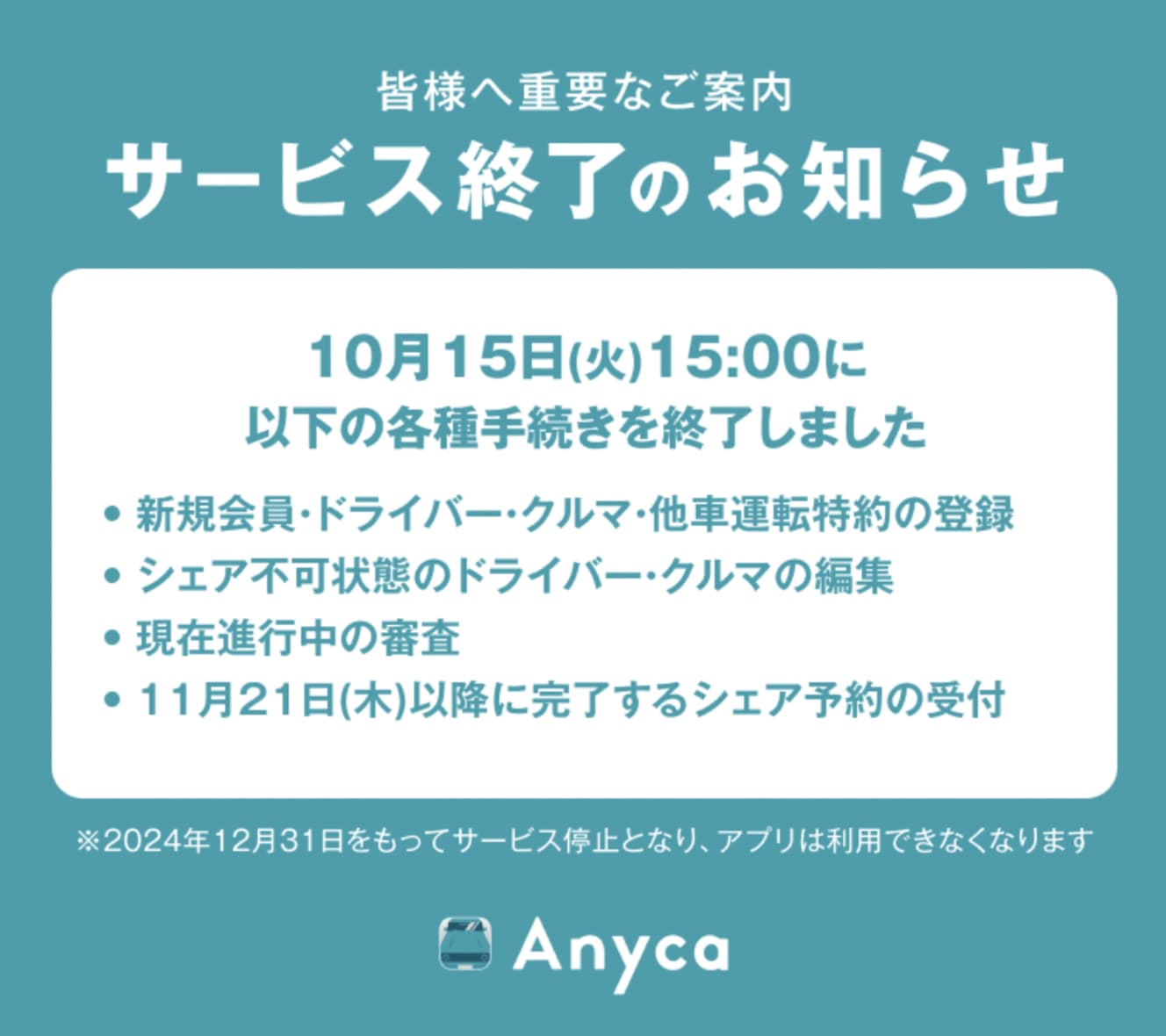
Launched in September 2015 as a pioneer in peer-to-peer car sharing, Anyca completely ended its service on December 31, 2024.
There are two main types of car-sharing services that have rapidly spread in recent years: rental-car type services like Times Car Share (with cars marked with the “wa” registration), and peer-to-peer car-sharing services where individuals rent out their privately owned vehicles. Anyca was the latter, providing a matching service for peer-to-peer car-sharing. Unlike rental-car type services, which involve commercial car rentals and thus use “wa” registration plates, peer-to-peer car-sharing operates under the concept of “shared use of privately owned cars.” This is why users could choose from a wider variety of vehicles, including vintage cars and sports cars, which rental services typically don’t offer. However, it is also true that the service was plagued with incidents and accidents.
In this article, the author reflects on the actual malicious users and troubling incidents that occurred with Anyca based on previous research.
White powder found inside a car
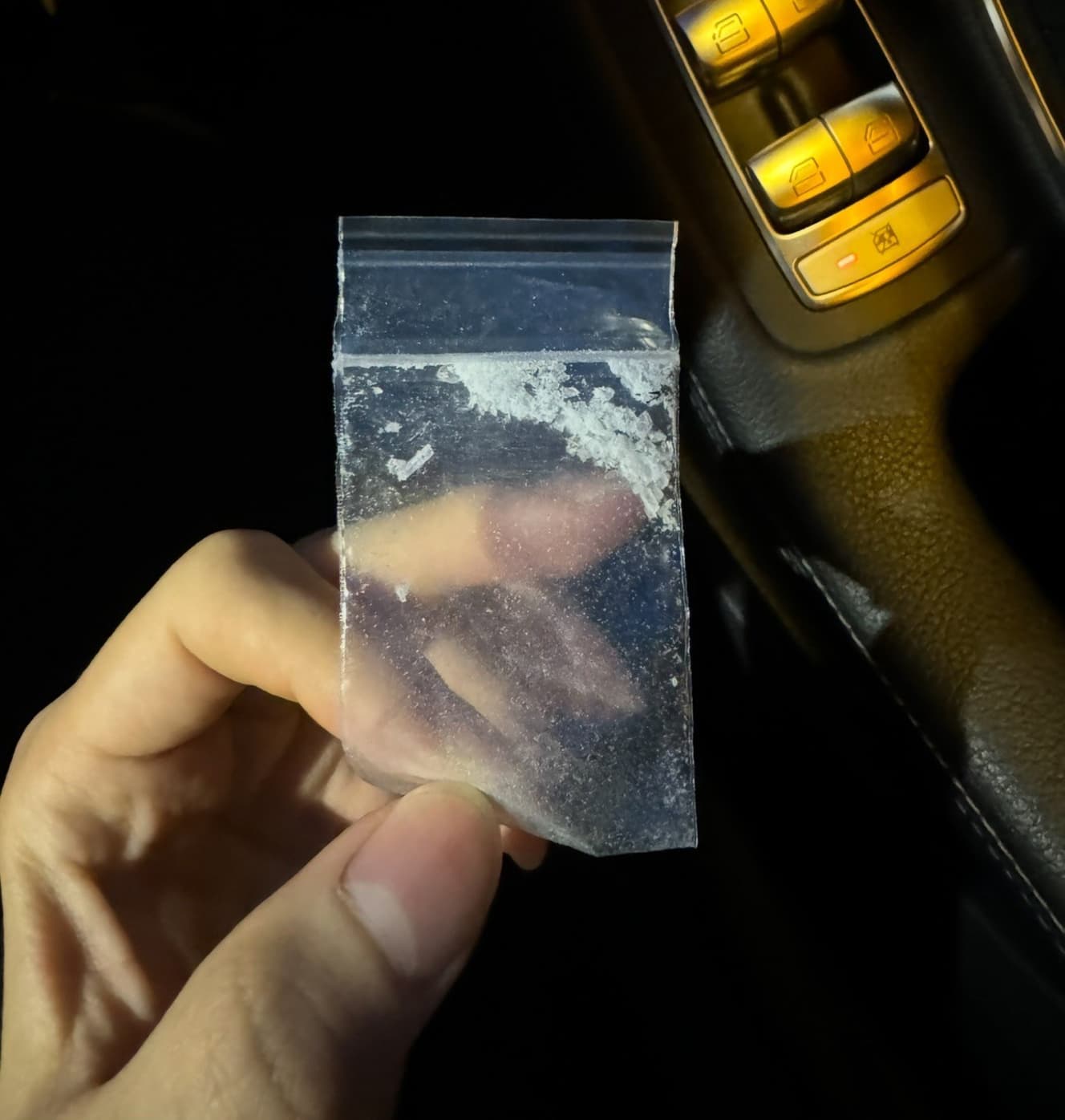
Tomoki Kobayashi (pseudonym), who lives in the Kansai region, had been using Anyca for peer-to-peer car-sharing since around 2020. At the end of 2023, while cleaning his car, he noticed a small transparent bag wedged between the dashboard and the windshield. When he pulled it out, the bag contained a white powdery substance.
“I thought, ‘No way?’ I had seen things like this in photos or dramas, but of course, I had never actually seen drugs before. It looked very much like it, but I wasn’t sure what to do. So, I asked my fellow Anyca owner friends, and they told me I should report it to the police. I took it to the nearest police station, still unsure. After an analysis, it was confirmed to be methamphetamine, which shocked me all over again.”
At the police station, he was asked to hold the small bag of drugs, point at it, and take photos. They also took his fingerprints and several full-body photos of him, ultimately detaining him for more than three hours. “The place where I found it was in a spot where it could have been easily noticed from the outside. If the police had found it, my questioning would have been a lot more complicated.”
The police later reportedly made a request to Anyca for user disclosure. Since it was unclear how long the bag had been in the car, they were gathering information on the drivers who had rented the car in recent months to identify the culprit.

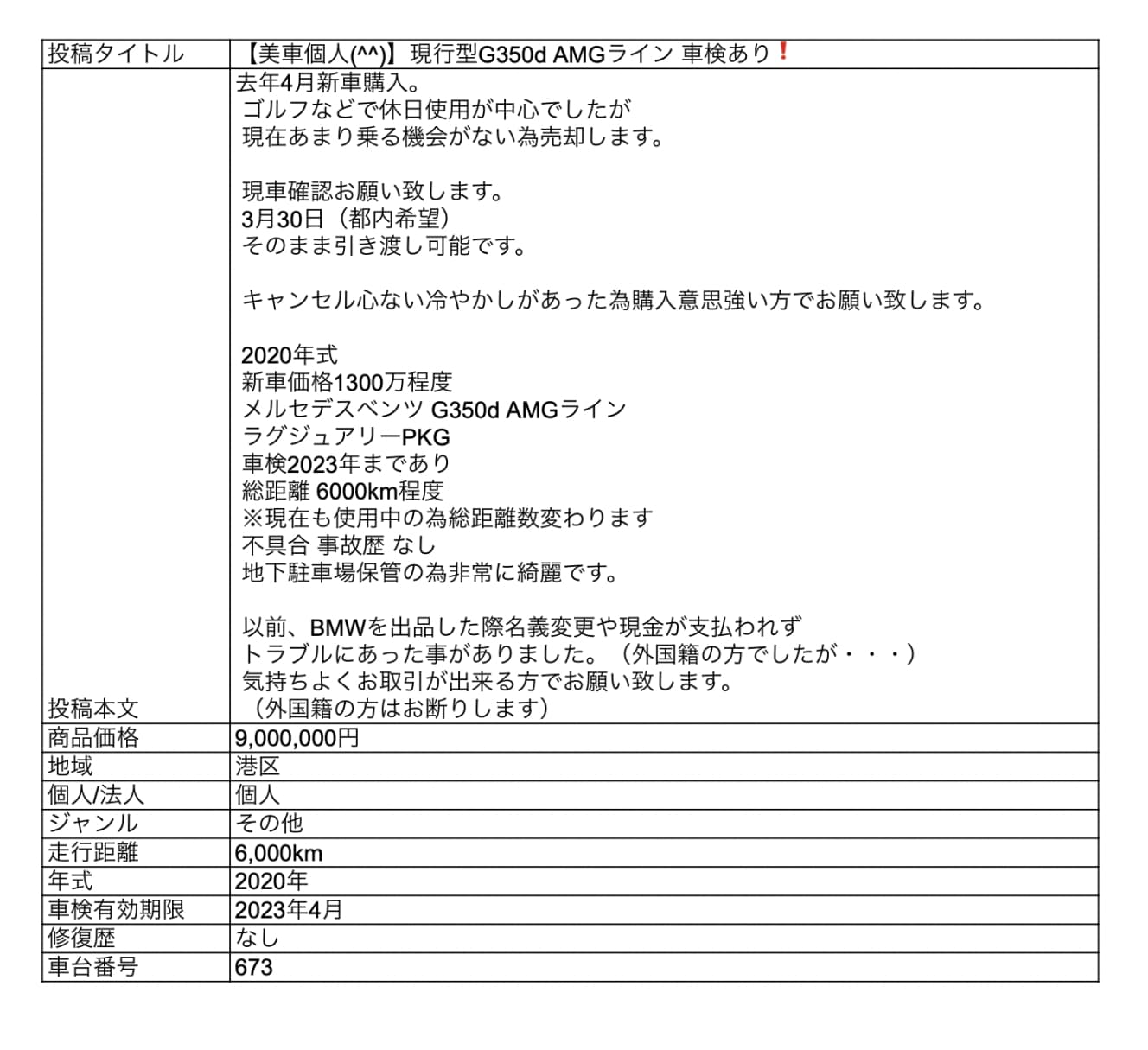
The rented Geléndez was being bought and sold without permission
In June 2021, FRIDAY published an article titled “I Lent My Car on Anyca, and It Was Listed on Jimoty!” The victim had lent out their luxury sports car, a “GT-R,” which was then listed for sale without permission. A used car dealer ended up purchasing it, but the perpetrator has not yet been identified.
In fact, during this time, there were other Anyca users who nearly had their cars sold without consent. Takashi Yamamoto (pseudonym), the owner of a Mercedes-Benz G-Class (G-Wagon), recalls the experience:
“The method was complex and clever. The perpetrator claimed it was for a ‘secret survey by an automobile auction company’ and hired part-time workers at 50,000 yen per day. To prevent the workers from reporting it to the police, they even set up fake training at the auction company and convinced them it was legitimate work, not illegal side jobs. They then registered the part-time workers on Anyca and had them share my G-Wagon, essentially using them as ‘runners’ to deliver the car to the perpetrator.
The perpetrator successfully finalized a sale contract for my G-Wagon on Jimoty without my consent. I heard that the buyer, who came all the way from Kyushu, was called to a parking lot in Akasaka, Tokyo, with 9 million yen in cash. When the buyer showed up, they were greeted by a man who introduced himself as a ‘transaction agent’ named ‘Gyosei-shoshi Tezuka.’ However, at the last moment, the buyer realized something was off and contacted both me, the legal owner, and the Akasaka police station. ‘Tezuka’ fled just before the police arrived, but both the money and the G-Wagon were fortunately safe.”
The writer also interviewed a person who had unwittingly assisted the part-timer in the scheme, but it turned out that the part-time wages were never paid.
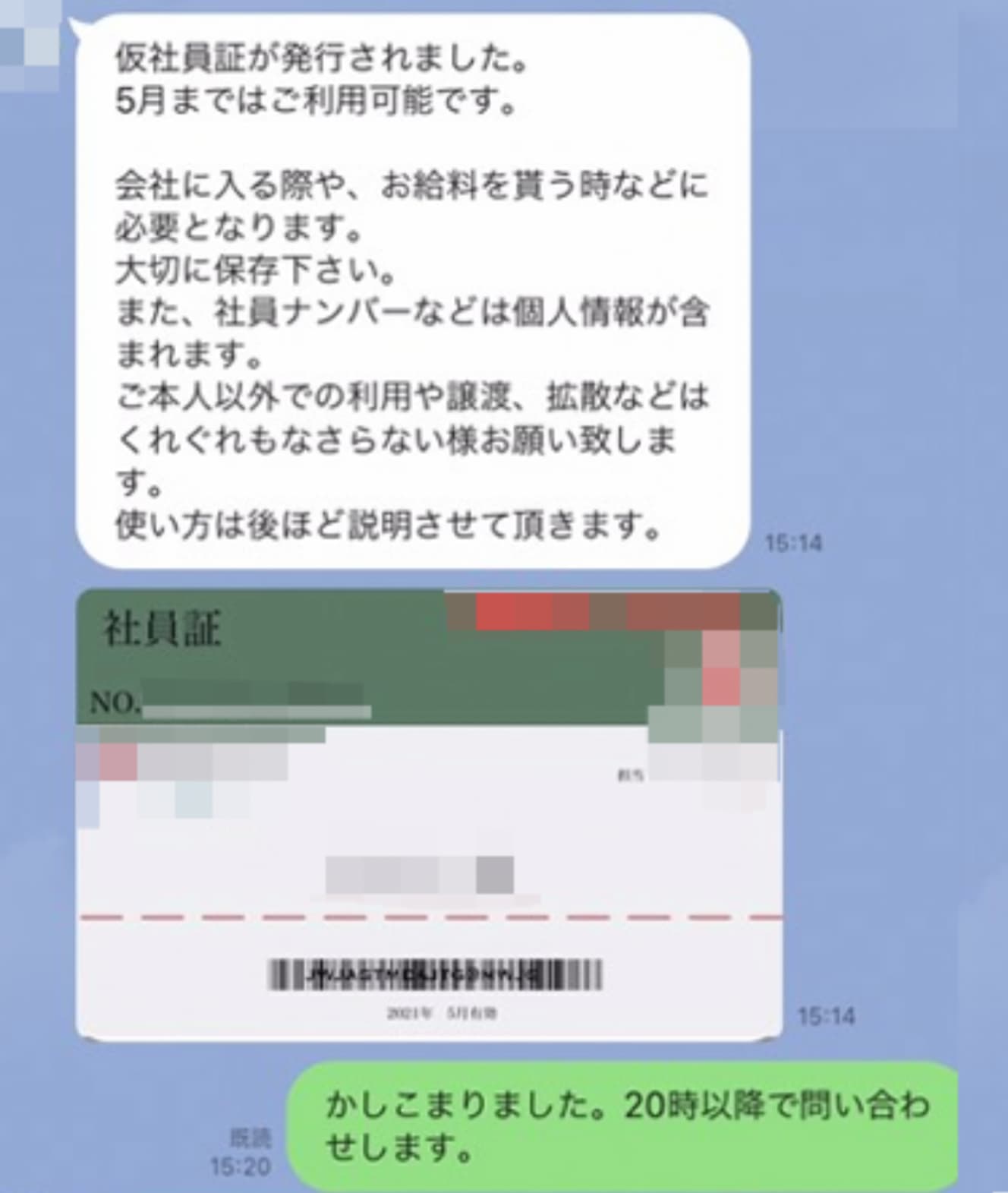
Drinking troubles also occurred
The final incident involves “drunk driving.” This case was uncovered when Makoto Mitsui (pseudonym) from Saitama checked the dashcam footage after his Mercedes-Benz, which he had lent out through Anyca, was returned. The person who rented the car had a very bad attitude, and the car was returned well past the scheduled time.
“Even though the return time had passed, I received no communication, and the car was finally returned two days late. When I checked inside, there were signs of spilled alcohol, and the stains still remain. It’s sticky, and the color hasn’t come off. What’s worse, there was no apology. It was really frustrating.
Curious about what happened inside the car, I checked the dashcam footage, and it showed two people drinking canned chu-hi and beer in the front and passenger seats. They were drinking both day and night! There were also scenes where they spilled alcohol inside the car while drinking. They probably didn’t realize the recording was happening. The driver had at least two cans of chu-hi.”
Driving while drinking, and spilling alcohol inside the car without cleaning it up. Looking at the photos, they appeared to be young men, but it’s terrifying that anyone with a driver’s license could register as a driver and rent a car. What’s worse is that Anyca maintained a stance of merely offering a matching service, stating, “We ask that trouble resolution be handled between the parties involved,” and avoided getting deeply involved in conflicts.
Were these incidents real, and did Anyca acknowledge them? In response to an inquiry from FRIDAY Digital, DeNA SOMPO Mobility, the company that operated Anyca, answered as follows:
“Due to the service’s termination, we are unable to accept inquiries from the press, and we appreciate your understanding.”
In addition to these incidents involving malicious users, there were also several cases of owners committing scams. One common issue was owners charging exorbitant repair fees, such as demanding 100,000 yen for scratches on the car doors, even when the renters had no recollection of causing the damage.
As shown by these three examples, the worst offenders were undoubtedly the users. However, the lack of a system to regulate such behavior may have been one of the reasons Anyca’s service came to an end. While personal car-sharing services can be a dream come true when properly managed, offering a convenient and affordable service, the reality is that there are still many challenges to creating a service that everyone can use with confidence.
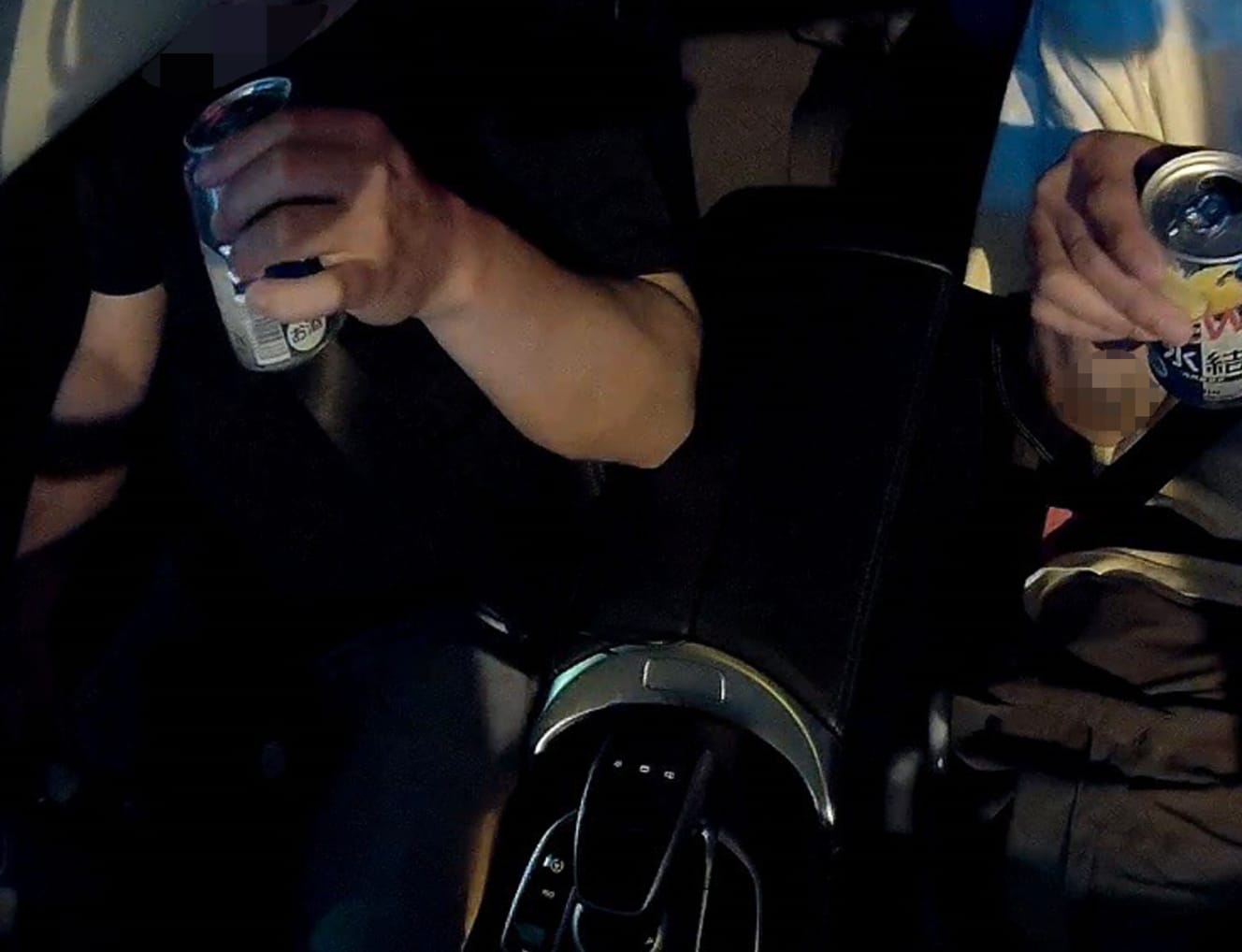
Interview and text: Kumiko Kato